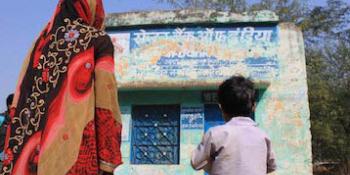Paydash: Unlocking Administrative Data to Support Impoverished Households
Paydash: Unlocking Administrative Data to Support Impoverished Households
Government programs frequently capture huge amounts of data, but how can that data be put to use to help vulnerable citizens?
Government programs frequently capture huge amounts of data, but how can that data be put to use to help vulnerable citizens?
In 2014, the UN Secretary General's Data Revolution Group wrote, “Data are the lifeblood of decision-making and the raw material for accountability.” But data collected by government, particularly in lower income settings, often doesn’t improve policy and programmatic decisions or increase transparency to the extent it could. How can data be used in service of government and citizens, particularly in capacity-constrained settings? Can building better data feedback loops address persistent service delivery challenges?
EPoD has been working with India’s Ministry of Rural Development since 2013 to increase the user-friendliness of one of the world’s largest development databases. To facilitate improved monitoring and evaluation by program implementers, researchers and the public, we co-created the MGNREGA Public Data Portal and Reports Dashboard, which have served as springboards for further collaboration. We are also in the process of testing PayDash, a web and mobile app that uses real-time data already collected by government officials to decrease delays in wage payments to workfare participants. Initial results suggest the app can markedly decrease delays - but longer-term results are still needed, and more can be done to leverage the power of the tool to improve service delivery. The PayDash study will also answer important questions about how “big” data can most effectively improve information and monitoring within the bureaucratic hierarchy for the public good.
Principal Investigators:
Rohini Pande
Charity Troyer-Moore, Harvard University
Eric Dodge, Harvard University
Yusuf Neggers, University of Michigan
This research is supported by:
UK Department for International Development Policy Support Fund and Building Capacity to Use Research Evidence Programs
International Growth Centre
The Bill & Melinda Gates Foundation
This project is implemented by Evidence for Policy Design (EPoD) at the Harvard Kennedy School in collaboration with EPoD India at IFMR, a joint program by EPoD at the Harvard Kennedy School and the Institute for Financial Management and Research (IFMR), along with J-PAL South Asia.
Highlights
Development programs, even the largest and most ambitious ones, are still implemented by individuals at the local level.
Automating systems for disclosure may be the best option to strengthen transparency.








